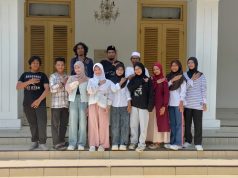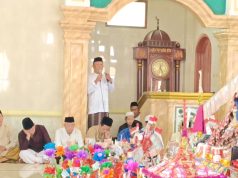CCN, Cilegon -In an effort to strengthen regional cultural identity while enhancing teacher competency, the Bina Cendekia Optima Foundation (BCO Foundation), in collaboration with the Department of Education and Culture (Dindikbud) of Cilegon City, held a training program on Local Content for Cilegon Javanese Language and Literature for elementary school teachers.
The training was attended by hundreds of elementary school teachers from various schools across Cilegon, focusing on the introduction, development, and implementation of a local curriculum based on Cilegon Javanese language and literature.
In her opening remarks, Head of Dindikbud Cilegon, Heni Anita Susila, expressed her appreciation for the program and hoped it would provide solutions for teachers who often face challenges in delivering local content materials in schools.
According to Heni, the training is part of an effort to preserve local languages and culture through education.
“Regional language and literature are valuable legacies. Through this training, our teachers are equipped to teach local content that is contextual, grounded, and close to the lives of Cilegon’s children,” she said on Saturday, May 10, 2025.
As the organizing partner, the Bina Cendekia Optima Foundation presented experienced speakers in the field of local linguistics and culturally-based pedagogy, including Ahdi Zukhruf Amri.
“The materials delivered cover creative teaching methods, local vocabulary mapping, and writing culturally-rooted children’s literature,” said Ikhwan Hadi Susanto, Chairman of the BCO Foundation.
Ikhwan, also known as Wawan, added that the training also featured Fauzi Albarra, an NLP (Neuro-Linguistic Programming) practitioner, who presented strategies for teaching using a neurosemantics approach.
“This training is expected to strengthen teachers’ roles as cultural preservation agents and enrich students’ learning experiences through meaningful local content. It is also a strategic step in aligning the national curriculum with local wisdom while reinforcing students’ national identity through early cultural education,” Wawan concluded. (Red)






